Thursday, 20 April 2023
Plenary V: Position, Navigation, and Timing
Co-chairs
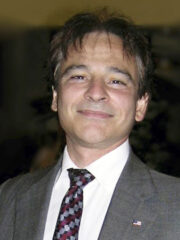
Mitch Narins, Principal Consultant, Strategic Synergies, LLC
Mitch Narins is the principal consultant/owner of Strategic Synergies, LLC, a technical and management consultancy that he formed following over four decades of U.S. government service at the Federal Communications Commission, the Department of Defense, and finally for over two and a half decades as a program manager and systems engineer at the Federal Aviation Administration, where his last position was as the FAA chief systems engineer for navigation.
Mr. Narins is recognized as a world class expert in position, navigation, and timing (PNT), who has published and presented numerous papers in international forums on the criticality of ensuring the resilience of PNT services. In 2017, his name was added to the Smithsonian National Air and Space Museum’s Wall of Honor. He serves on GPS World Magazine’s editorial advisory board, which recognized him as one of the “50+ Leaders to Watch.” He is a Certified Information Systems Security Professional (CISSP), a fellow of the Royal Institute of Navigation (RIN), a senior member of the Institute of Electrical and Electronic Engineers (IEEE), a member of the Institute of Navigation (ION) and its Washington, DC section head, and a member of RTCA, RTCM, IEEE, and SAE Standards Committees.
Mr. Narins holds a Bachelor of Science in electrical engineering from the City College of New York and a Master of Science in engineering management from George Washington University (GWU). He is an adjunct professor in GWU’s Mechanical and Aerospace Engineering Department instructing in their senior Capstone Project and mechanical systems design classes, as well as a mentor to Clark Scholars.
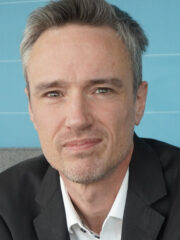
Ludovic Aron, U.S.A Representative, European Aviation Safety Agency (EASA)
Ludovic Aron is the European Union Aviation Safety Agency (EASA) representative in the United States of America, based in Washington D.C. He has over 20 years of experience in aircraft design engineering and certification. After his military service in the French Navy, he joined Dassault-Aviation, working as an aircraft systems engineer, first in the Military Customer Support division and then in the Business Jets division. After 10 years, Ludovic joined new French airplane maker Sky Aircraft (GECI Aviation Group) as head of Aircraft Systems. In 2013, Ludovic came to the European Union Aviation Safety Agency (EASA) and soon after he was appointed head of the Business Aeroplanes Certification. Thereafter he became head of the Large Aeroplanes Certification, in charge of the European certification of the most modern airliners. He held this position for about 5 years and was namely responsible for the return to service of the B737 Max in Europe after its worldwide grounding in March 2019.
Ludovic holds a Master of Science in aeronautical and aerospace engineering with a focus on space-based telecommunications that he obtained after studying both at the Institut Supérieur de l’Aéronautique et de l’Espace – ISAE-SUPAERO (Toulouse, France) and at the Technische Universität München – TUM (Munich, Germany).
Panelists
Dr. Sherman Lo, Senior Research Engineer, Stanford University GPS Laboratory, “Providing Authentication for SBAS”
Sherman Lo is a senior research engineer at the Stanford GPS Laboratory. He also is executive director of the Stanford Center for Position Navigation and Time (SCPNT) and a Stanford instructor. His research work focuses on navigation safety, security, and robustness. At Stanford, he was associate investigator for the FAA evaluation of enhanced Loran and alternative position navigation and timing (APNT) systems for aviation. He currently leads work examining GNSS resiliency, interference and spoofing detection and mitigation. He has over 130 conferences, 28 journal, 14 magazine publications and 8 issued U.S. patents.
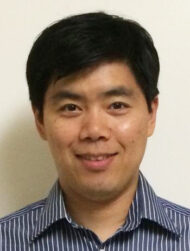
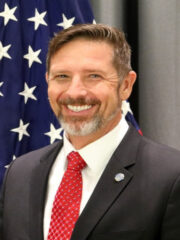
Michael W. Weiler, Manager, FAA Spectrum Engineering Services, “Spectrum Engineering’s Impact on Aviation”
Michael Weiler is manager of the Spectrum Engineering Services at the FAA and is responsible for leading this team that secures, manages, and protects all civil aviation radio frequency spectrum resources. This ensures the safe transport of all individual flights between airports by protecting the National Airspace System (NAS) from potential sources of interference.
In 2001, Michael joined the FAA and served in numerous leadership capacities within the Air Traffic Services Directorate. Michael held the position of Manager for Surveillance Systems and Sensor Programs where he was responsible for leading a contractor and government workforce to plan, execute, implement, and sustain various systems in the NAS. Prior to this, he served as the Program Manager for Terminal Automation Modernization Replacement Phase One.
Michael holds a Master of Business Administration from Marymount University, and a Bachelor of Science and associate degree in computer networking from Strayer University.
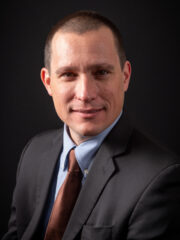
Dr. Okuary Osechas, Group Leader, German Aerospace Center, DLR, “Improving Efficient Use of the L-Band Spectrum”
Okuary (pronounced oh-kwa-REE) Osechas is a researcher at the German Aerospace Center, known as DLR. At DLR Okuary leads the effort in developing navigation services for civil aviation that are independent of GNSS, yet provide a comparable service level.
In addition to being a researcher, Okuary is active in standardization, chairing the working group at EUROCAE dedicated to 4-D Trajectories, as well as supporting ICAO in developing LDACS for APNT. He received a doctorate in electrical engineering from Tufts University in 2014, courtesy of the FAA. His thesis focused on various aspects of integrity monitoring for GBAS.
Workshop: Minimum Viable ICNS Infrastructure (MVII) for Statewide Support for UAS and AAM Operations
Awards Ceremonies
Presentation of Best Paper Awards
11:45 – 12:00
